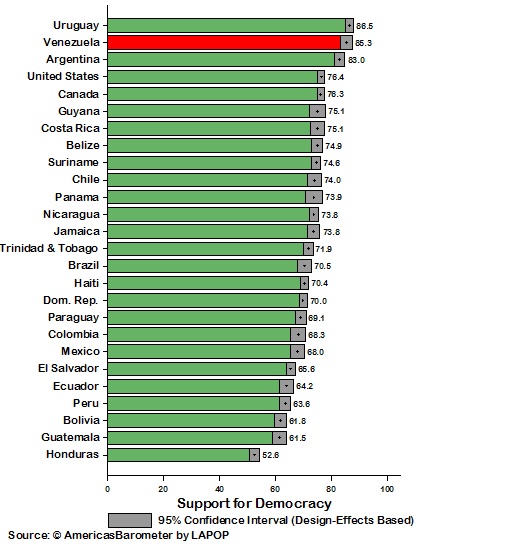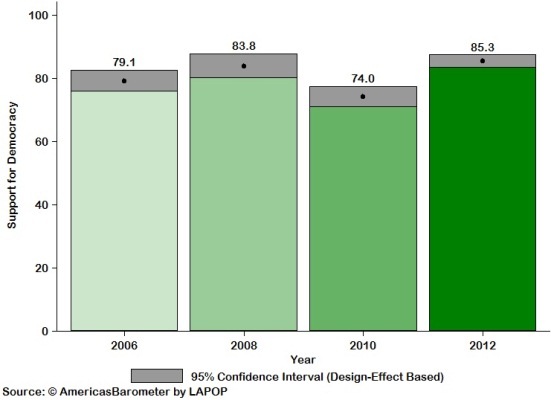
Public support for democracy in Venezuela remained among the highest in the Americas during the last year of President Hugo Chávez’s 14 years of power, according to a survey by the Latin American Public Opinion Project at Vanderbilt University.
Chávez died March 5 in Caracas. A populist leader, his long tenure coincided with the collapse of the party system in Venezuela and with high levels of crime and corruption that have taken a toll on citizens’ sense of security.
Despite those factors, an AmericasBarometer poll of a nationally representative sample of 1,500 respondents taken in February and March 2012 found that Venezuelans supported democracy by an overwhelming 85.3 percent, placing them second only to Uruguay (66.5 percent). The United States trailed at 76.4 percent.

“In analyses we conducted of factors that predict support for democracy in Venezuela in 2012, we find that the only factors that help distinguish those Venezuelans who are more supportive of democracy from those who are less supportive … are age (older are more supportive than the young) and education (more education are more supportive than less educated), but beyond those two factors support for democracy is fairly evenly spread across the Venezuelan population,” wrote the authors of the report.

The report was written by graduate student Frederico Batista Pereira; Mitchell Seligson, LAPOP founder and director and Centennial Professor of Political Science; and Elizabeth J. Zechmeister, associate director of LAPOP and associate professor of political science.
LAPOP develops, implements and analyzes the AmericasBarometer public opinion surveys. Since the 1970s, LAPOP has gathered a treasure-trove of databases containing political perspectives from Latin America and the Caribbean. LAPOP data and reports are available to interested researchers at the LAPOP website.